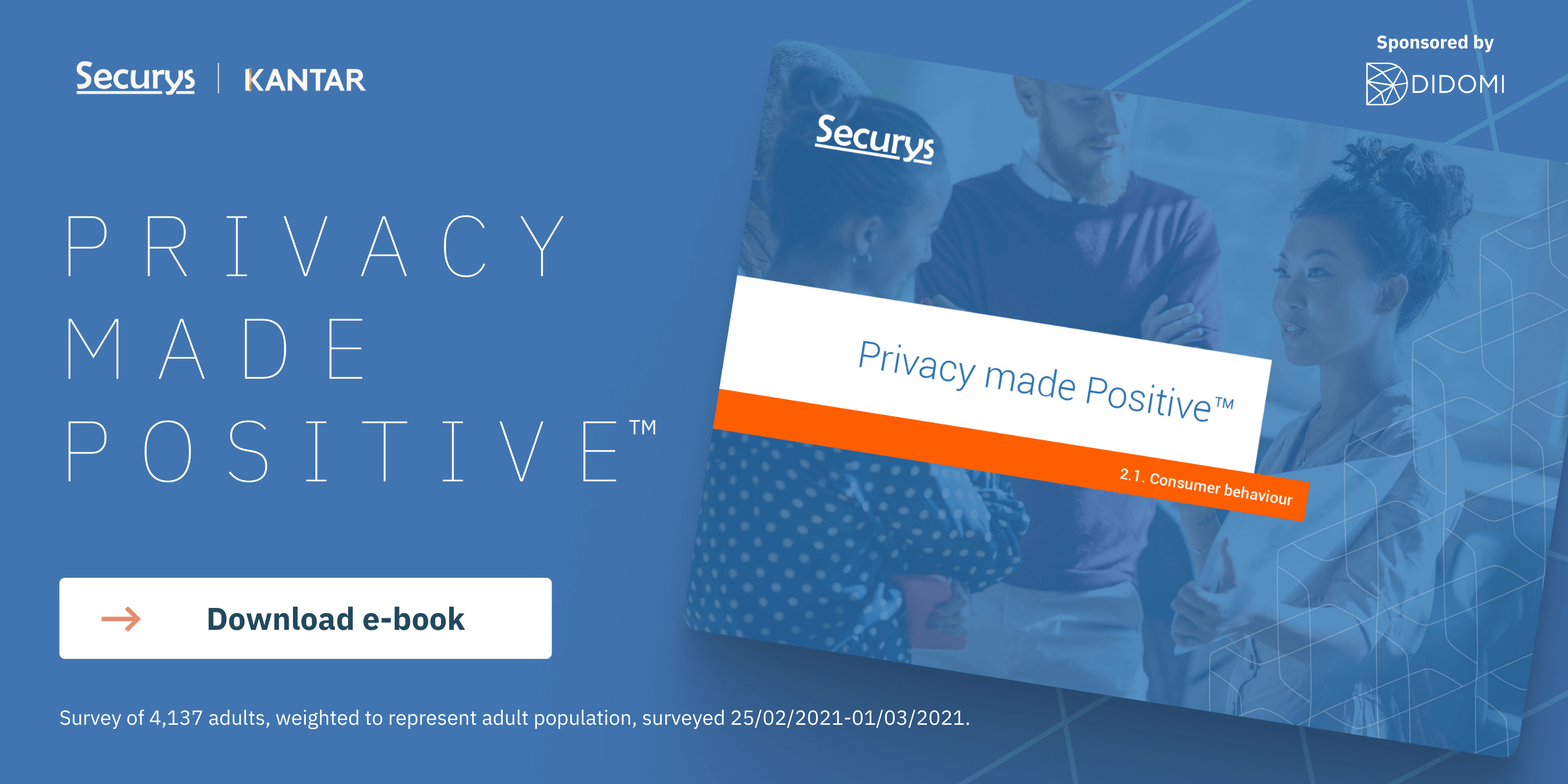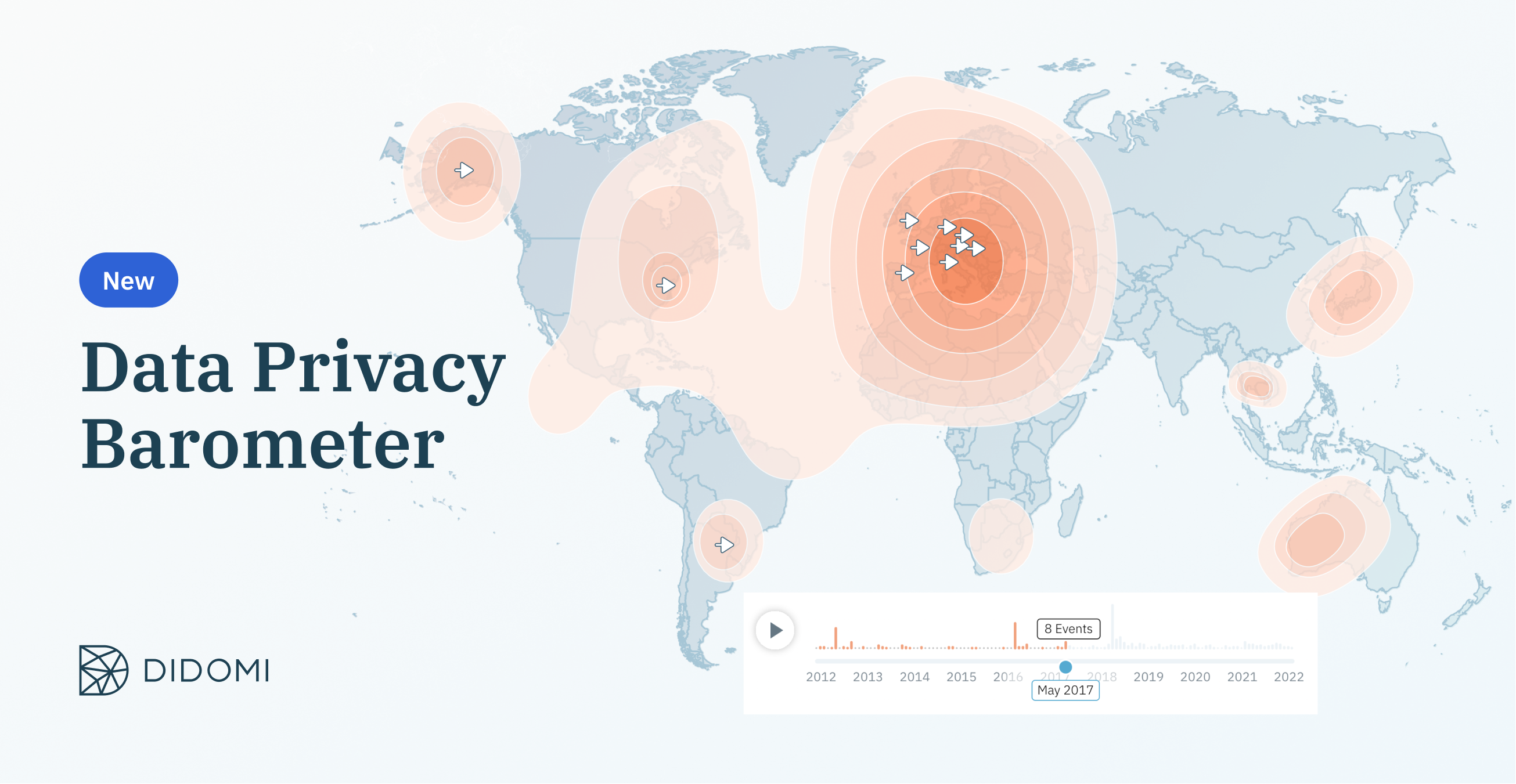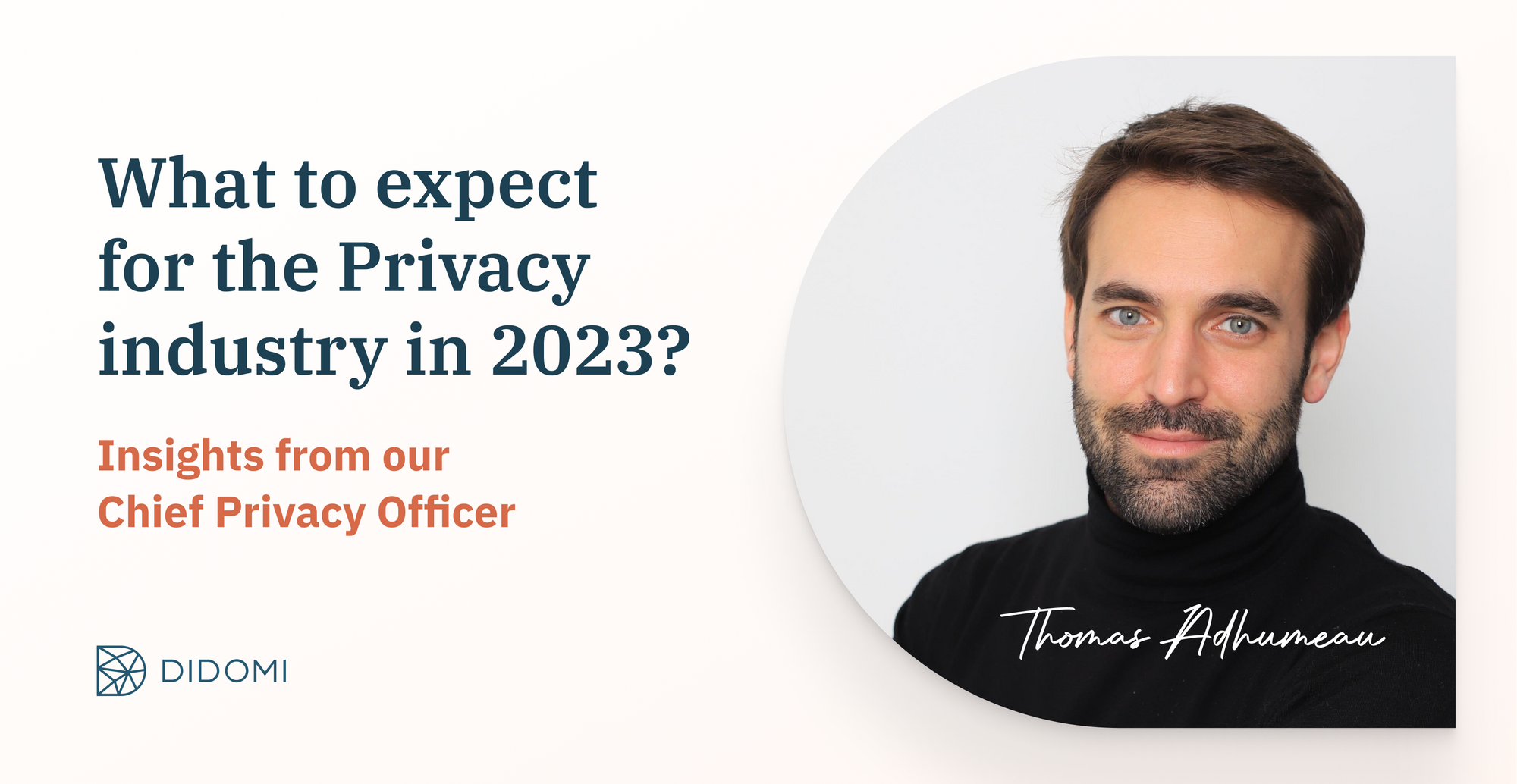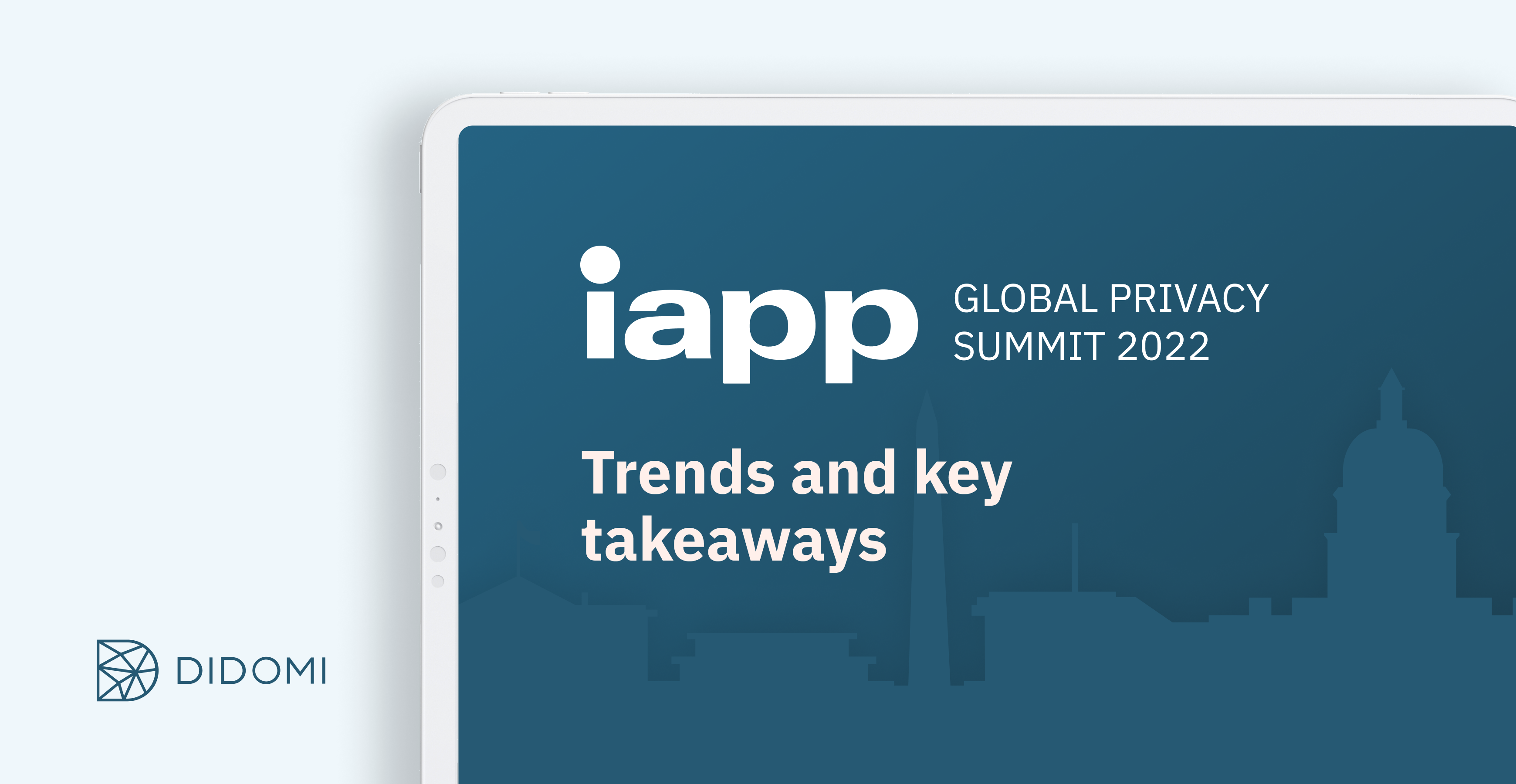In what could be described as the new dawning age of privacy, trusted firms and brands that embed privacy considerations into their larger business and long term planning stand to benefit. Business models of those that are not, and do not, stand to become increasingly challenged.
Good privacy practices affect consumer behavior across all age cohorts. It is no longer primarily the young who are ‘privacy actives’, but entire nations of individuals for whom bad privacy repels. Carry on reading to find out more.
Summary:
|
Yes We Trust Summit: Didomi organised a worldwide event on October 7th 2021 on how privacy drives business What is personal data, and who should it belong to? What value can companies place in data today? How can companies place trust in their raw data, how can it help take better decisions and be used in new ways without infringing privacy regulation? Watch the replay to know more.
|
.png?width=1200&name=YWT_Speakers%20(rectangle).png)
Securys Limited, commissioned Kantar to survey more than 4,000 adults across France, Germany, Ireland and Great Britain (survey sponsored by Didomi). The respondents were asked if the way companies treat their personal data changes their consumer habits.
Keep reading if you want to know more, or watch the replay here of our recent Privacy Made Positive™ Lexology webinar, with Romain Gauthier, Didomi CEO and Ben Rapp, Founder & Principal at Securys Limited.
Consumers care about how their personal data is being used
Across all countries surveyed, over 85% of people are confident with the definition of personal data, but more and more people are also concerned about how their data might be used.
Concern is spread across age groups, gender, occupation and employment status, as well as countries.
Older generations are more concerned
One might assume that younger consumers would be more likely to be concerned about privacy, but, in fact, this research shows the opposite. Despite younger generations having a better understanding of technology and are therefore more active, older generations have demonstrated to be the most concerned about their personal data.
Women are more concerned than men
Furthermore, our survey shows that women are more concerned about how their data is being used than men (about 70% for women and 60% for men, across all countries). This should be taken seriously because women currently drive between 70-80% of all consumer purchasing decisions.
The concern is real and trust needs to be built
Some 50% of people across France, GB, Germany and Ireland have exercised their rights over their data (e.g. by requesting: copies of personal data held, a correction or deletion, processing of data to be stopped, or data not to be sold on).
People are really concerned about how their personal data might be used. Across all countries, people are concerned about 4 top fears:
-
Identity theft
-
Use of data for purposes other than that which it was originally collected
-
Transfer of data outside of one’s home country
-
Health data misuse and government surveillance
|
Privacy Made Positive™ E-book: Evidence that consumers act on privacy. Download the e-book if you want to know what European consumers think about privacy, how it impacts their purchasing decisions and why your company should care. Our Privacy Made Positive™ research will get your colleagues, board and investors to care about investing in privacy!
|
Concern about data use impacts consumer habits
This increasing global concern about the way personal data is used is also reflected in daily purchasing habits. So the question consumers need to be asked is not so much “how much do you care?” but more,“what have you concretely done as a consequence of this?”, “is the general public willing to act if they feel as though a brand is not transparent in their data practices?”, “does good privacy really sell, and bad privacy repel?”.
Privacy is a significant factor in buying decisions
Privacy reflects in consumer habits and precedes purchasing. Across all countries included in the Privacy Made Positive™ research, nearly 20% of consumers pay a great deal of attention before proceeding with an intended purchase.
Around 70% have decided not to go through with a purchase because maybe they don’t feel comfortable about the way their personal data is used. Others cancelled a service or stopped buying a product from a supplier because of concerns about privacy. These are people who are acting on privacy and not just caring about it.
Consumers are more likely to buy from a company that they trust
Similarly, 70% of consumers in France and Germany have decided to buy a product or service specifically because of supplier commitment to consumer privacy.
How much are people willing to pay for better privacy? Across all countries, over one third of consumers consider better privacy more important than lower prices. They actively select good privacy over a cheap price - which is perhaps surprising.
Of course, personal data protection is a human right, and consumers shouldn’t have to pay to have their human rights protected. However, the fact that consumer behavior is so influenced by data concerns points to a huge opportunity for businesses.
Brands that embed privacy considerations into their wider business plan and product roadmap stand to benefit, brands that do not stand to lose out on valuable customers.
Four-fifths of consumers believe that transparency is important to trust a company or brand. If our assumption is true: “Good privacy sells and bad privacy repels”, then a shift towards better privacy is essential to avoid losing customers as well as missing out on new ones.
Consumers act on privacy
The average frequency of purchases made because of a company’s commitment to consumer privacy is 60% across all countries, which shows once again the importance of doing privacy well.
|
“We felt that there was an attitude that businesses complied with privacy because it was the law, they were complying in a sense reluctantly. We wanted to show that if you do privacy well, it actually benefits your organisation and attracts customers. It attracts staff as well, drives loyalty and drives propensity to purchase.” - Ben Rapp, Founder & Principal at Securys Limited |
Your company needs to adopt a "privacy-first" business model to succeed
Our advice to companies? Put yourself in the shoes of the consumer and ask yourself some simple questions: How will they perceive your data practices? Will your public information and newsflow give them confidence?
Adopting a “privacy-first” business model will deliver a measurable return, not just in reputation protection and avoidance of fines, but also in increased sales and profits for your business.
If you commit to safeguarding data beyond the minimum which is required by the law, you will find that consumers will be happier, they will add more value to your company and they’ll be more likely to trust your brand. This will be directly visible in your revenues.
If you provide clear, transparent information on your data practises and effective consent and preference management to your customers, you will improve opt-in rates and increase your ability to generate revenue.
Didomi builds technology to help companies put their users in control of their personal data. By doing so, our clients generate trust and lay the groundwork for privacy-conscious growth.
Among its wide range of products, Didomi offers a Consent Management Platform (CMP), which collects billions of consents every month, and a popular Preference Center (PC), which gives users granular control over their communication and data preferences.
These tools make user experience more fluid and the process of consent collection easier, allowing companies to place privacy at the architectural and strategic level of their business.
To conclude, a change towards a 'privacy-first' approach may be difficult at first. But over time, you will realize that it can definitely be a positive change for your business.
See it as a new beginning rather than a threat to your business. A new beginning in which privacy is made positive.
For more information, contact us!







%20(4).png?width=3600&name=PRIVACY%20MADE%20POSITIVE%20-%20Linkedin%20(6)%20(4).png)
%20(2).png?width=3600&name=PRIVACY%20MADE%20POSITIVE%20-%20Linkedin%20(4)%20(2).png)



